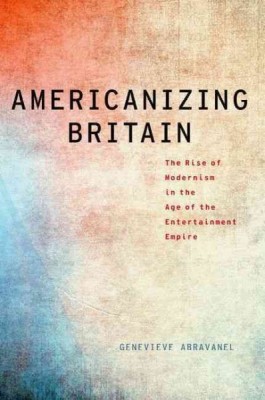| Americanizing Britain: The Rise of Modernism in the Age of the Entertainment Empire Contributor(s): Abravanel, Genevieve (Author) |
|
 |
ISBN: 0190272414 ISBN-13: 9780190272418 Publisher: Oxford University Press, USA OUR PRICE: $37.99 Product Type: Paperback - Other Formats Published: March 2016 |
| Additional Information |
| BISAC Categories: - Literary Criticism | English, Irish, Scottish, Welsh |
| Dewey: 820.935 |
| Physical Information: 0.6" H x 6.2" W x 9.1" (0.70 lbs) 224 pages |
| Themes: - Cultural Region - British Isles |
| Descriptions, Reviews, Etc. |
| Publisher Description: How did Great Britain, which entered the twentieth century as a dominant empire, reinvent itself in reaction to its fears and fantasies about the United States? Investigating the anxieties caused by the invasion of American culture-from jazz to Ford motorcars to Hollywood films-during the first half of the twentieth century, Genevieve Abravanel theorizes the rise of the American Entertainment Empire as a new style of imperialism that threatened Britain's own. In the early twentieth century, the United States excited a range of utopian and dystopian energies in Britain. Authors who might ordinarily seem to have little in common-H.G. Wells, Aldous Huxley, and Virginia Woolf-began to imagine Britain's future through America. Abravanel explores how these novelists fashioned transatlantic fictions as a response to the encroaching presence of Uncle Sam. She then turns her attention to the arrival of jazz after World War I, showing how a range of writers, from Elizabeth Bowen to W.H. Auden, deployed the new music as a metaphor for the modernization of England. The global phenomenon of Hollywood film proved even more menacing than the jazz craze, prompting nostalgia for English folk culture and a lament for Britain's literary heritage. Abravanel then refracts British debates about America through the writing of two key cultural critics: F.R. Leavis and T.S. Eliot. In so doing, she demonstrates the interdependencies of some of the most cherished categories of literary study-language, nation, and artistic value-by situating the high-low debates within a transatlantic framework. |